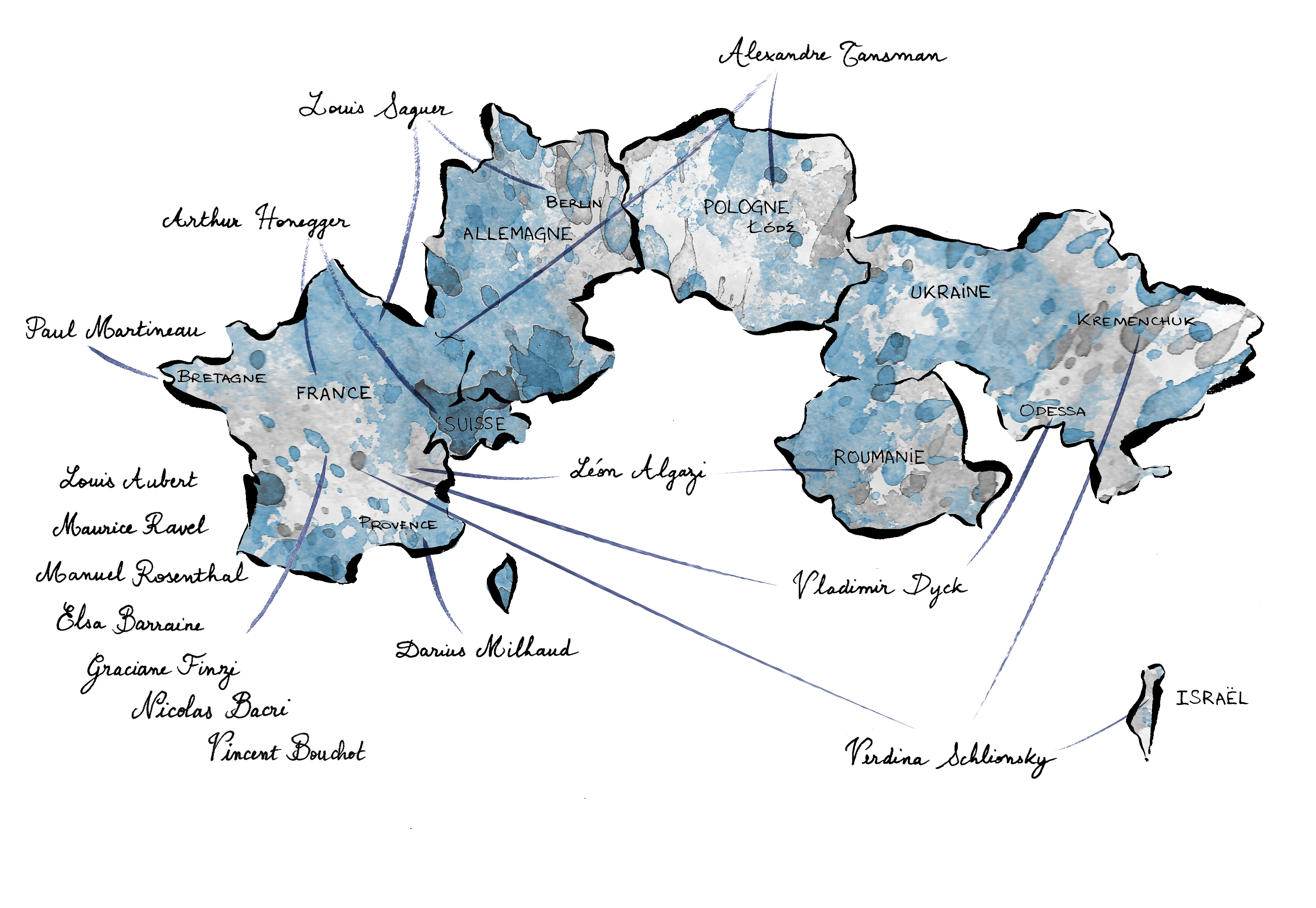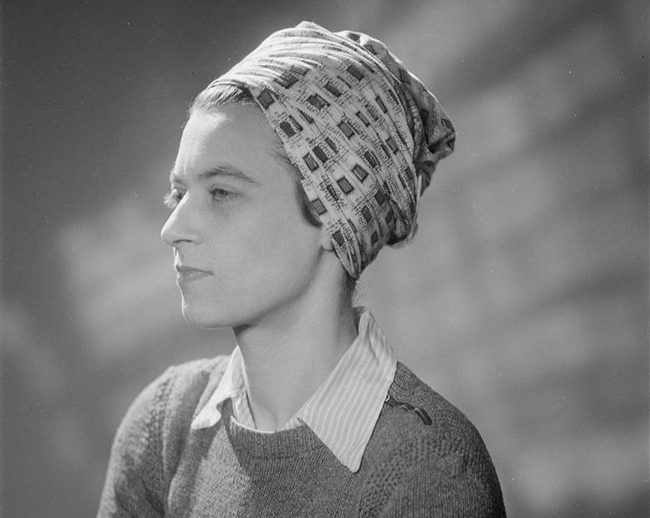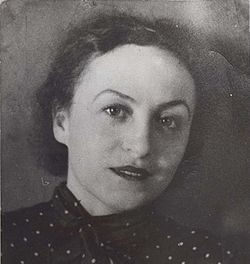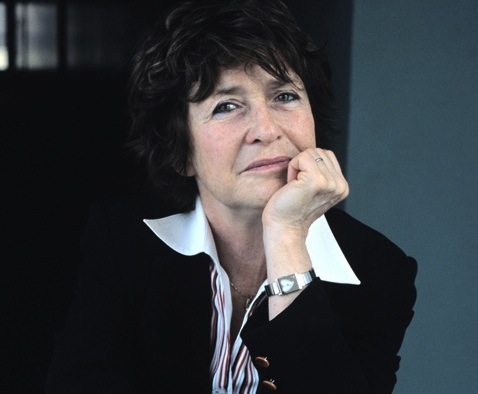Composers
Known composers
Maurice RAVEL (1875-1937)
Darius MILHAUD (1892-1974)
Arthur HONEGGER (1892-1955)
Rare composers
Léon ALGAZI (1890-1971)
Louis AUBERT (1877-1968)
Manuel ROSENTHAL (1904-2003)
Alexandre TANSMAN (1897-1986)
Unearted composers
Vladimir DYCK (1882-1943)
Paul MARTINEAU (1890-1915)
Louis SAGUER (1907-1991)
Composers of today
Graciane FINZI (1945)
Nicolas BACRI (1961)
Vincent BOUCHOT (1966)

© Matthieu Fayette
Three female composers on the programme

Elsa Barraine
A disciple of Paul Dukas, Elsa Barraine was awarded the Prix de Rome at the age of nineteen. Director of the Orchestre National (National Orchestra) from 1944 to 1946, she finished her career as a national inspector of Opera Houses, under the supervision of the Ministry of Culture. As a Jewish woman, activist, and communist engaged in the Résistance, she participated in the creation of the National Front of Musicians intended to prevent musicians from collaborating with the Germans. It is thanks to her and her networks of résistants that the composer Louis Sager, whose real name was Ludwig Wolfgang Simoni, obtained his “real-forged documents”. Her Three Children’s Songs, composed on the Hebrew texts of Haïm Nahman Bialik, held my attention as well as her Four Hebrew Mélodies, a mixture of French mélodies and cabaret songs.

Verdina Schlonsky
A forgotten talent, Verdina Schlonsky was a gifted pianist. Disciple of Nadia Boulanger at the Conservatoire National de Paris, she received the “Assistance to Professional Women Musical Prize” in 1930. A surprizing award at the time, it was presented to her for her “Poème hébraïque”, based on a poem by her brother, the great poet Abraham Schlonsky. This work caught my full attention: it is the fourth among six in her collection of “Palestianian Images”. They were originally sung in Hebrew but each have a French version. Though unfortunately forgotten, Verdina Schlonsky can be considered as the first Israeli female composer.

Graciane Finzi
Graciane Finzy writes: “Nothing is deeper or more moving for a composer than to write from a sacred text, and to allow oneself to give sounds to words that have infinite meaning, to respect the atmosphere of reverence induced by the liturgy by using a voice, a piano and a cello, all in service of the text. But like all music written from a religious text, this Kaddish, like Ravel’s, must also lend itself to being played in a profane context, a concert hall or any other public venue. For that matter, it was put on by its creator, Abdellah Lasri, at the Essaouira Festival in Marocco.”
Partnerships

